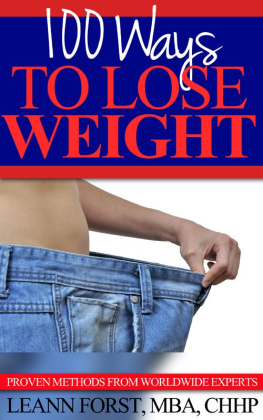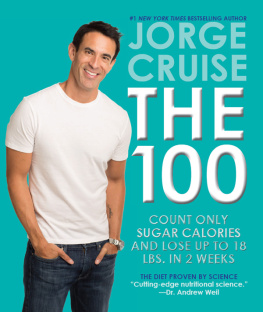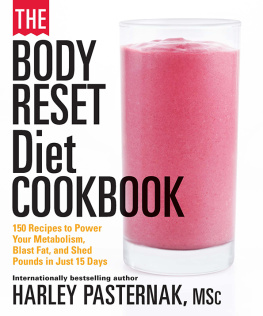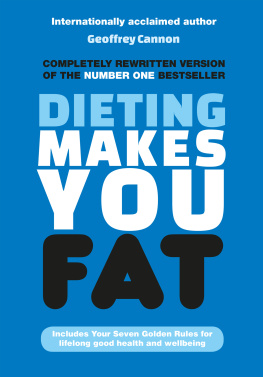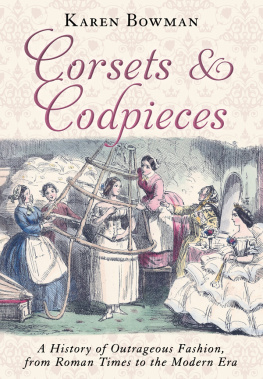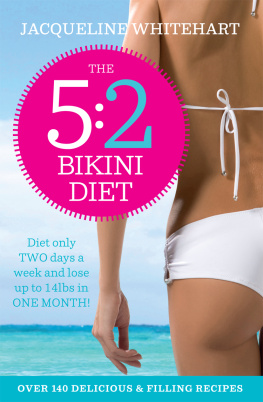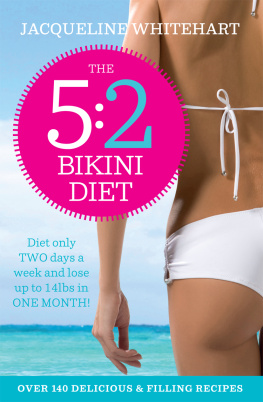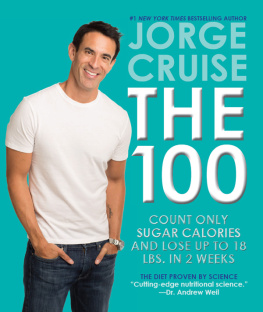Calories & Corsets
ALSO BY LOUISE FOXCROFT
Hot Flushes Cold Science:
A History of the Modern Menopause (2010)
The Making of Addiction: The Use and Abuse of Opium in
Nineteenth-Century Britain (2006)
Calories & Corsets
A history of dieting over 2,000 years
Louise Foxcroft

First published in Great Britain in 2011 by
PROFILE BOOKS LTD
3A Exmouth House
Pine Street
London EC1R OJH
www.profilebooks.com
Copyright Louise Foxcroft, 2011
1 3 5 7 9 10 8 6 4 2
Typeset in Garamond by MacGuru Ltd
info@macguru.org.uk
Printed and bound in Great Britain by
Clays, Bungay, Suffolk
The moral right of the author has been asserted.
All rights reserved. Without limiting the rights under copyright
reserved above, no part of this publication may be reproduced, stored or
introduced into a retrieval system, or transmitted, in any form or by any
means (electronic, mechanical, photocopying, recording or otherwise),
without the prior written permission of both the copyright owner and
the publisher of this book.
A CIP catalogue record for this book is available from the British Library.
ISBN 978 1 84668 425 8
eISBN 978 1 84765 458 8
The paper this book is printed on is certified by the 1996 Forest
Stewardship Council A.C. (FSC). It is ancient-forest friendly. The printer
holds FSC chain of custody SGS-COC-2061

Virtually all so-called obesity cures are simply shrewd schemes for fooling the overweight, and the purchasers of most of them are being kidded by experts.
Arthur J. Cramp, Fooling the Fat in
Your Weight and How to Control it (1928)
I have always wanted a mistress who was fat.
Paul Gauguin (18481903)
If fat is not an insidious creeping enemy, I do not know what is.
William Banting, Letter on Corpulence,
Addressed to the Public (1869)
To the scientist there is nothing so tragic on earth as the sight of a fat man eating a potato.
Vance Thompson, 1920s
Whatever be the quantity that a man eats, it is plain that if he is too fat, he has eaten more than he should have done.
Samuel Johnson (170984)
That fat men are indolent and stupid is well recognised.
Leonard Williams, MD, Obesity (1926)
A fat man is a joke, and a fat woman is two jokes one on herself and one on her husband.
Cecil Webb-Johnson, MD, Why Be Fat? (1923)
Are you aware that fatness has destroyed your sex appeal and made you look older, somewhat like a buffoon whom people are inclined not to take seriously in any area or on any level?
Frank J. Wilson, Glamour, Glucose and Glands (1956)
For my dad and his love of words
CONTENTS

1. Too many of us are labouring under the tyranny of a culturally prescribed body shape; where dieting is the norm and a skinny body the goal. Women such as the singer Beth Ditto are facing down the prejudice and the bullying and challenging todays ideas of what is beautiful. She has used her weight to promote her belief that such a personal thing as ones body should never be a reason for controversy, since every person is beautiful in their own way. The story of beauty and the story of health have always been intertwined but the long and mean history of body-shaping and diets has distorted our view of both.
1
Introduction: The Price of a Boyish Form
FAT, PLUMP, STOUT, overweight, large, chubby, portly, flabby, paunchy, pot-bellied, beer-bellied, meaty, of ample proportions, heavyset, obese, corpulent, fleshy, gross, plus-sized, big-boned, tubby, roly-poly, well-upholstered, beefy, porky, blubbery, chunky, pudgy, podgy, bulky, substantial, voluminous, voluptuous, generous, lardy Weve heard them all.
Fat is bad and dieting is the new norm, but few people in recent decades have had what we might call a normal relationship with food, one untouched by the constant barrage of diet news, fast foods and a food environment radically different from what it was even just a generation ago. If we look further back than that centuries back it becomes obvious that much of the dieting industry is fraudulent, yet still we follow the latest fad, hoping for some quick and easy weight-loss miracle because slimming down is hard, tedious work. Our attitudes to our bodies, and to fat and food, need to change.
Fad diets are little better than useless. They do the biggest business and arguably the greatest harm, and they have been around since long before your great-grandmother was eyeing up that fetching knitted knee-length number for her trip to Bognor with a new beau. Dieters can initially lose 5 to 10 per cent of their weight on any number of fad diets, but the weight almost always comes back. A recent report by the American Psychological Association which looked at thirty-one diet studies found that, after two years of dieting, up to two-thirds of dieters weighed more than they did before they began their regimen. Sustained weight loss was found only in a small minority of the participants, while complete weight regain was found in the majority. Diets, they concluded, do not lead to sustained weight loss or health benefits for the majority of people. And there is evidence that yo-yo dieting is something of a Faustian bargain: it can make the whole enterprise more difficult so that repeat dieters find they have to eat less and for longer to lose the same amount of weight. Recent evidence suggests that, even though the most important changes we can make to reduce our cancer risk (after giving up smoking) are to exercise and lose weight, repeated dieting is linked to cardiovascular disease, stroke, diabetes and a compromised immune system. The human cost of both obesity and yo-yo crash dieting is bad enough but there are huge economic costs too. We need to re-think our quest for unrealistic thinness through sometimes dangerous, expensive and misguided crash diets and pills, and return to a simple, sensible healthy approach to eating as first set out by the Greeks.
While I was writing this, and feeling a bit of a fraud because Ive never seriously attempted a diet, I had a go at a low-carbohydrate plan to see how it would feel and whether Id be able to stick it out. It was a strict regimen that I got from a best-selling diet book, and it proved to be much more of a trial than Id imagined. Im not by nature an obsessive person but from the minute I woke up each day I found myself thinking about food. I thought about what I could eat, when I could eat it, how much I could have and, particularly insidious, I cast sideways glances at friends and family to check on what everyone else was having. I took to weighing myself naked, before my first cup of coffee, and then clothed, and then late, after dinner at night, just so I could obtain the greatest range of numbers and ruminate on where I was in my diet and what it all meant (answer: very little, other than I lost half a pound, but all this weighing and obsessing proved a major distraction from the work that I should have been getting on with). What it did provide was a real insight into the way in which dieting can become obsessive and how any new diet that promises stress-free, painless and fast weight loss is instantly attractive. The repetitive and often unsatisfying experience of dieting can only be debunked by a long, hard look at its history, a process that could release us from the tyranny of fads and quick-fixes.
Next page

